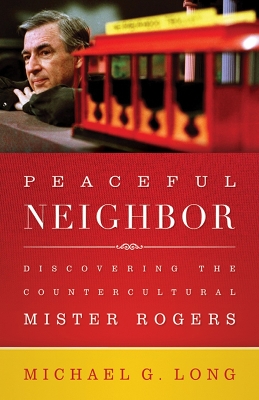
lovelybookshelf
More of my thoughts on this title can be found on my blog at Lovely Bookshelf.

Bookhype may earn a small commission from qualifying purchases. Full disclosure.
Fred Rogers was one of the most radical pacifists of contemporary history. We do not usually think of him as radical, partly because he wore colorful, soft sweaters made by his mother. Nor do we usually imagine him as a pacifist; that adjective seems way too political to describe the host of a children's program known for its focus on feelings. We have restricted Fred Rogers to the realm of entertainment, children, and feelings, and we've ripped him out of his political and religious context. Rogers was an ordained Presbyterian minister, and although he rarely shared his religious convictions...
Read more
Fred Rogers was one of the most radical pacifists of contemporary history. We do not usually think of him as radical, partly because he wore colorful, soft sweaters made by his mother. Nor do we usually imagine him as a pacifist; that adjective seems way too political to describe the host of a children's program known for its focus on feelings. We have restricted Fred Rogers to the realm of entertainment, children, and feelings, and we've ripped him out of his political and religious context. Rogers was an ordained Presbyterian minister, and although he rarely shared his religious convictions on his program, he fervently believed in a God who accepts us as we are and who desires a world marked by peace and wholeness. With this progressive spirituality as his inspiration, Rogers used his children's program as a platform for sharing countercultural beliefs about caring nonviolently for one another, animals, and the earth.
To critics who dared call him aEUROoenamby-pamby,aEURO Rogers said, aEUROoeOnly people who take the time to see our work can begin to understand the depth of it.aEURO This is the invitation of Peaceful Neighbor, to see and understand Rogers's convictions and their expression through his program. Mister Rogers' Neighborhood, it turns out, is far from sappy, sentimental, and shallow; it's a sharp political response to a civil and political society poised to kill.
